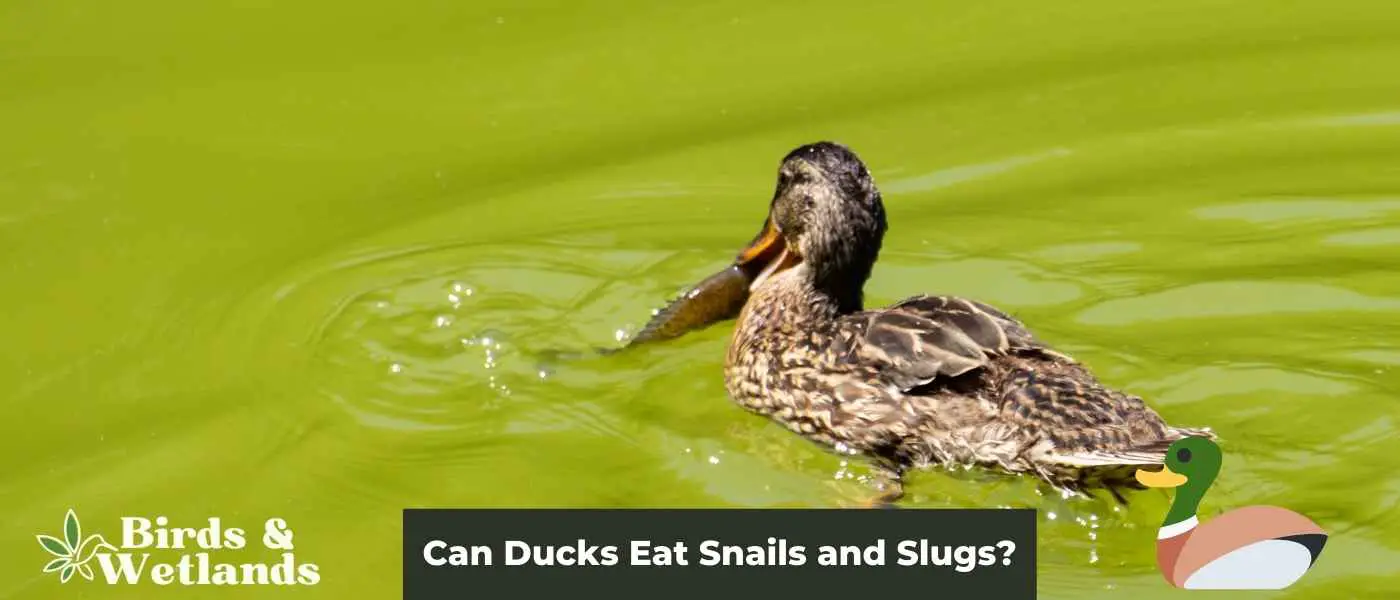As a duck owner, you may be looking for ways to diversify your feathered friend’s diet and introduce some new treats.
Snails and slugs, common garden pests, may seem like a perfect choice. After all, ducks are natural foragers, and snails and slugs are a readily available source of protein.
However, before you start serving up these slimy creatures to your ducks, there are some important things to consider. Get ready to quack up and discover everything you need to know about feeding snails and slugs to your feathered friends.
Can ducks eat snails and slugs?
Yes, ducks can eat snails and slugs, as they are a natural part of their diet. Snails and slugs provide a good source of protein and essential nutrients for ducks. However, be cautious of snails and slugs that may have been exposed to pesticides or other chemicals, as consuming them can be harmful to ducks.
Key Takeaways on Feeding Ducks Snails and Slugs
- Snails and slugs provide a good source of protein and other nutrients for ducks, but they can also be dangerous if eaten in large quantities.
- Ducks should not be eating snail shells because they can be a choking hazard.
- Feeding wild or your ducks with snails and slugs is risky healthwise. These mollusks can carry parasites and worms.
What Kind of Nutrition Do Snails and Slugs Provide Ducks?
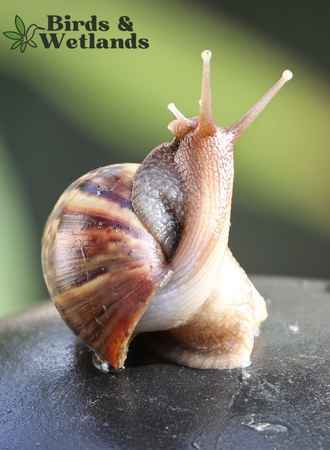
In the wild, ducks will forage for a variety of food sources, including insects, snails and slugs. While most people think of these creatures as pests, they actually provide a number of nutritional and health benefits for most ducks.
Excellent Protein Source
Adult ducks and ducklings need protein in their diet to help them grow strong bones and muscles. Protein is also essential for the development of feathers and beaks. In the wild, ducks eat predominantly such aquatic creatures as snails, slugs, bugs and insects.
Rich in Calcium and Iron
Calcium and iron are two essential minerals that ducks need for proper health. Calcium is a building block for proper bone development, while iron is essential for respiration and energy metabolism. In addition, iron helps the red blood cells move oxygen throughout the body.
Duck eggs need a healthy, thick shell to hatch successfully, and calcium and iron play a vital role in shell formation. Egg-laying ducks need to consume high levels of these minerals to remain healthy and produce strong offspring.
While all ducks need calcium and iron, these elements are essential for those that are responsible for continued reproduction.
Packed with Vitamin A
Vitamin A is essential for ducks for a number of reasons. It is a powerful antioxidant that helps to fight diseases and infections. It also supports white blood cells production, which helps to capture and clear bacteria and other pathogens from your duck’s bloodstream.
Vitamin A boosts the immune system, making ducks less susceptible to illness. Finally, vitamin A is good for eyesight, ensuring that ducks can see clearly and avoid predators.
What Are the Dangers of Eating Snails and Slugs for Ducks?
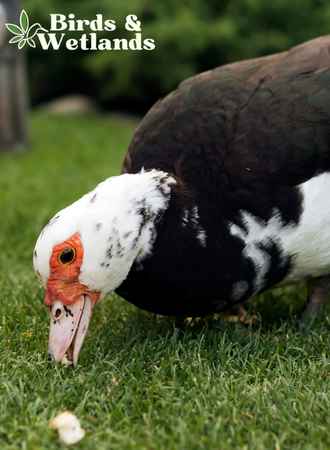
Ducks are often seen eating snails and slugs, but this common practice can actually be dangerous for the birds. Both snails and slugs can carry all kinds of parasites such as a tapeworm.
When ingested, the worm larva from the infected snail or slug travels to the duck’s brain, where it can cause severe neurological damage and breathing issues. In some cases, the duck may become paralyzed and die. Even if the duck or poultry does not die, the parasites or worms can cause long-term health problems.
For these reasons, it is best to avoid feeding your ducks snails and slugs. Or, if you want to provide your ducks with snails and slugs to feed on, get them from a reliable source.
Can Ducks Eat the Shells of Snails?
Ducks are opportunistic eaters, meaning they try to eat just about any food in the garden. But that doesn’t mean that everything is good for them.
Snail shells, for example, are made of calcium carbonate, a mineral that is too hard for ducks to digest. Eating snail shells can lead to choking and even death. So if you see a duck eating a snail, remove the shell before it has a chance to cause any harm.
Do Ducks Eat Slug Eggs?
Ducks are good slug hunters and will eat almost anything, including slug eggs. These eggs are an essential part of the diet of many animals, as they are rich in protein and other nutrients. While ducks may not actively seek out these eggs, they will undoubtedly eat them if they come across them.
Do Indian Runner Ducks Eat Snails?
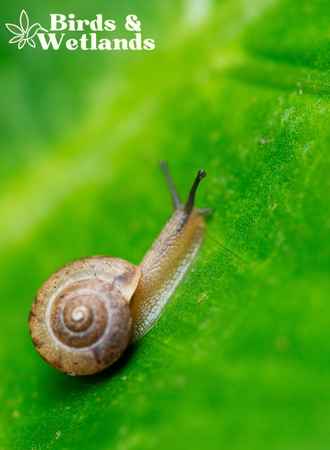
Indian runner ducks have a reputation as natural pest control for their love of eating snails and slugs. If you have runner ducks in your garden with raised beds, you’ll likely find that they do a good job of keeping the snail population under control.
In addition to snails, runner ducks also enjoy eating slugs, which can be another nuisance for gardeners.
If you’re looking for a way to naturally control the pest population in your garden, consider adding some runner ducks to your flock.
Do Muscovy Ducks Eat Snails?
Ducks love to eat snails, and Muscovy ducks and Mallard ducks are no exception. These ducks will also eat slugs. They seem to really enjoy the slimy texture of these creatures. So yes, it’s okay for Muscovy ducks to eat snails.
What Attracts Snails and Slugs?
Snails and slugs are common pests in a vegetable garden or a pond. While they are not dangerous to humans, they can cause considerable damage to plants on your vegetable bed. These creatures are attracted to gardens and ponds for several reasons.
Moist environment is ideal for them to survive.
Gardens and ponds often provide a variety of food sources, such as plant leaves or algae.
Lack of predators in these environments makes them feel safe, resulting in the explosion of the slug population.
Unfortunately, this means that snails and slugs can quickly become a nuisance if not kept in check. Gardeners and pond owners must keep these creatures under control to protect their plants.
If you’re dealing with a snail problem or looking ways of slug control, make sure you don’t use any chemical pesticides because these are harmful to your own ducks and other poultry.
FAQs on Ducks Eating Snails and Slugs
Can You Raise Ducks as Pest Control Against Slugs and Snails?
Ducks are often used as a natural pest control against slugs and snails. These animals can cause significant damage to crops, and their slimy bodies can transmit diseases to plants.
Ducks are effective at controlling these pests because they are voracious eaters. A single duck can consume a lot of slugs and snails daily. In addition, ducks help to aerate the soil, improving drainage and reducing the chances of fungal diseases taking hold.
While ducks are not a silver bullet solution to all garden pests, they can be a helpful tool in the fight against these destructive creatures.
What Other Small Creatures That Ducks Love to Eat?
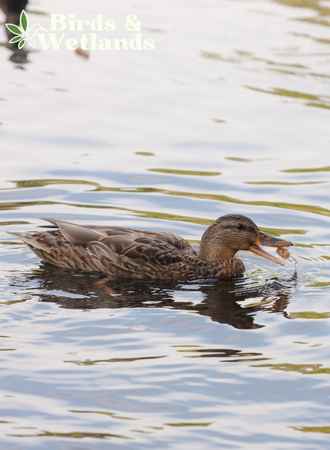
Many people think of ducks as primary herbivores, but the truth is that they are omnivores. Most duck species enjoy a varied diet that includes fruits, plants and other insects.
In addition to the grasses and other plants they typically eat, ducks enjoy small creatures such as mealworms, bugs and fresh water shrimp. While some duck species may be content to eat only plants, others will actively seek out these small animals as a source of protein.
It is important to feed your ducks with a varied diet that includes both plant material and small creatures. Doing so can ensure that your ducks remain healthy and happy.
Other Similar Food for Ducks
| Ants | Ants: A Duck’s Delicacy? |
| Spiders | Are Spiders Safe for Ducks? |
| Grasshoppers | Grasshoppers: A Tasty Treat for Ducks? |
| Ticks | Do Ducks Feast on Ticks? |
| Mosquitoes | Ducks vs. Mosquitoes: Who Wins? |
Ducks are omnivores and can eat a variety of natural foods, including insects and molluscs. Feeding ducks with these options can provide them with essential nutrients, but it’s important to ensure a balanced diet.
Best Duck Feed Pellets
Are you a duck owner looking for the perfect feed to keep your feathered friends happy and healthy? Look no further than Purina Duck Feed Pellets! With their nutritionally balanced formula and high-quality ingredients, these pellets are the ultimate solution for providing your ducks with the nutrition they need to thrive.
Pros
- Complete Nutrition: Purina Duck Feed Pellets are nutritionally balanced to provide all the essential vitamins and minerals that ducks need to stay healthy and strong.
- Easy to Digest: The pellets are specially formulated to be easy to digest, which makes them ideal for ducks of all ages.
- Promotes Growth and Development: With its balanced nutrition formula, Purina Duck Feed Pellets are designed to support healthy growth and development in ducks.
- Suitable for All Breeds: Whether you have domestic ducks or wild ducks, Purina Duck Feed Pellets are suitable for all breeds of ducks.
- Trusted Quality: Purina has been producing high-quality animal feed for over 100 years, so you can trust that your ducks are getting the best possible nutrition with Purina Duck Feed Pellets.
Cons
- Cost: Compared to other types of duck feed on the market, Purina Duck Feed Pellets can be slightly more expensive. However, many customers feel that the high-quality ingredients and balanced nutrition formula are worth the extra investment.
- Pellet Size: Some customers have noted that the pellet size of Purina Duck Feed Pellets can be quite large, which may not be suitable for smaller or younger ducks. However, many customers have reported that the pellets can easily be broken up or soaked in water to make them easier to eat.

